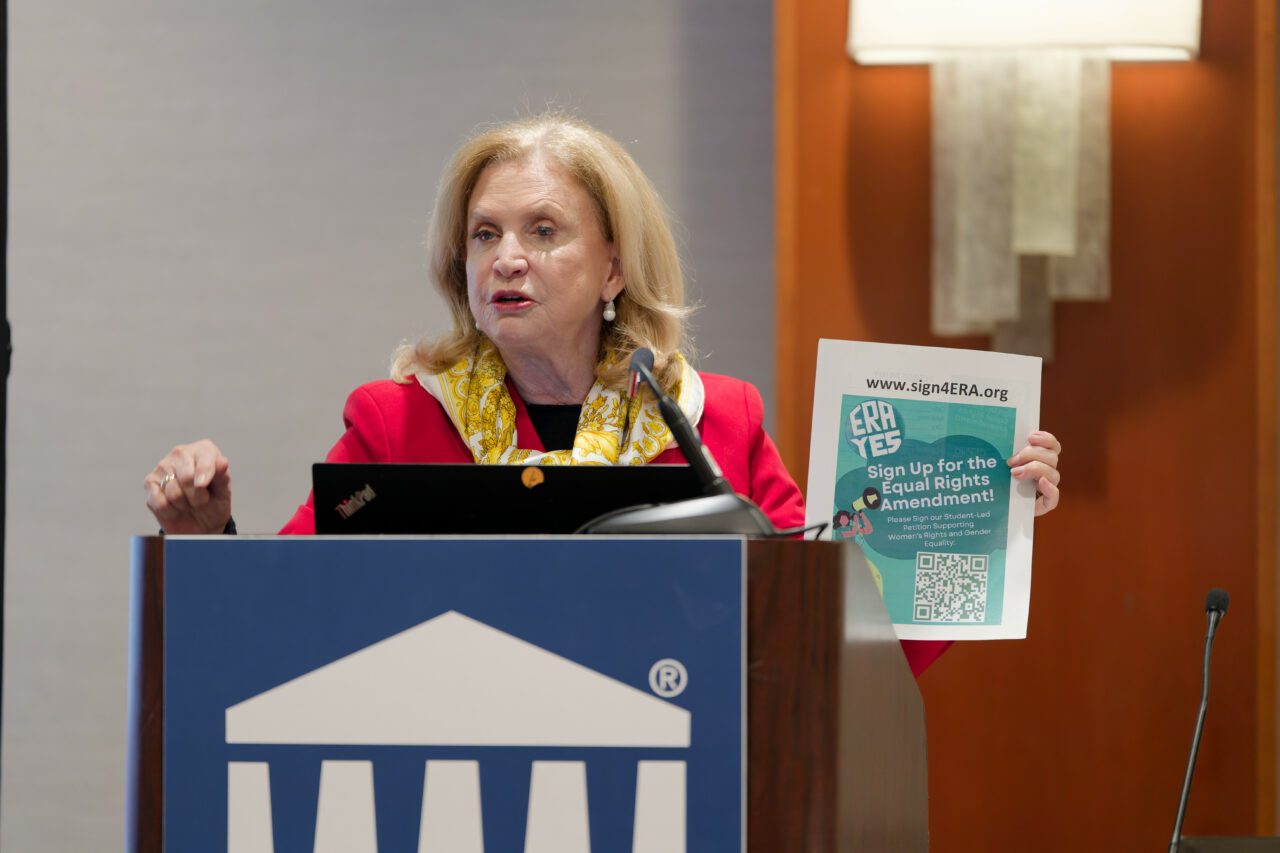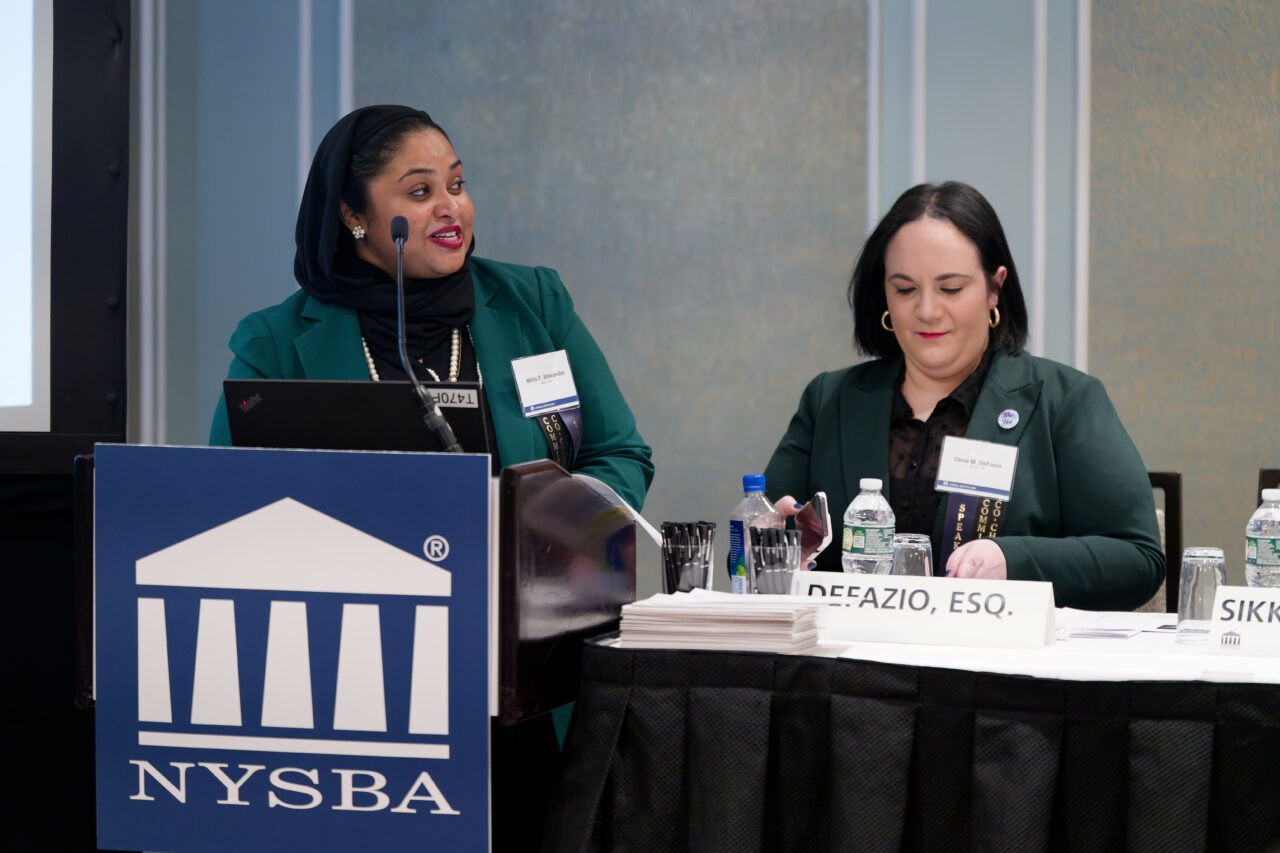LGBTQ+ Asylum Seekers Face Extra Challenges
1.26.2024
LGBTQ+ asylum seekers have a rough road to travel. Aside from the in-depth requirements that face anyone applying for asylum, government policies, red tape and changing administrations can leave would-be asylees in a holding pattern for years.
A recent Continuing Legal Education course, hosted by the New York State Bar Association’s LGBTQ Law Section, delved into the challenges facing LGBTQ+ asylum seekers. Daven Ghandi, founder and owner of Kaza Law, and Warren Seay Jr., partner at ArentFox Schiff, led the discussion.
In his practice, Ghandi assists LGBTQ+ people with the immigration process – and he also has a personal connection to the topic. “Being gay, married, and an immigrant from Malaysia, I face up to 20 years of imprisonment if the Malaysian [government] were to find out about my relationship and my marital status,” he said. “So, this reality underscores every case that I handle in my daily life.”
In order to be granted asylum, applicants must establish that they have a well-founded fear of persecution and cannot relocate within their country of origin.
“The applicant has to show… that the persecution is perpetrated by government or government entities or persons whom the government cannot or will not control, on account of their membership in a protected ground – and the protected grounds are race, religion, nationality, political opinion, and membership in a particular social group.”
In case law, LGBTQ+ identity counts as belonging to a particular social group. Persecution can include forced outing, attacks from family members, forced marriage, conversion therapy, discrimination due to being HIV-positive, and anti-LGBTQ+ government laws or polices.
Ghandi pointed out that nearly 80 countries around the world criminalize LGBTQ+ people in some way. On Nov. 30, 2023, the Russian Supreme Court ruled that the international LGBTQ+ movement is an extremist organization – leading to raids on gay bars and nightclubs the next day. This followed years of anti-LGBTQ+ laws and persecution in Russia.
One of Ghandi’s clients, a gay man from Russia, fled to the United States after his family members threatened to send him to conversion clinics. The man applied for asylum in 2017 and is still waiting for an interview. “Thankfully he met his United States citizen spouse, and they are applying for a marriage-based visa,” he said. “But this is the reality that individuals are stuck in that cycle of trauma or having to relive that and not really finding an end to their suffering – even though they have been in this country for six, seven, or eight years.”
On May 26, 2023, the Ugandan government passed a law that criminalizes same-sex relationships and LGBTQ+ advocacy, with punishments including life imprisonment and the death penalty.
“Unlike in the past, this new act is now being actively enforced, representing a mass change in the status quo by imposing such draconian sentences,” said Seay. Already, a 20-year-old man has been arrested and charged with “aggravated homosexuality” for being in a sexual relationship with a 41-year-old man. In the capital of Kampala, the police raided a health clinic and medical research facility for allegedly “conducting unethical research and recruiting homosexuals.”
While persecution of LGBTQ+ Ugandans has been ongoing for decades, very few have managed to receive asylum. Between 2002 and 2020, only 1,278 Ugandans have been granted asylum in the United States. “Although persecution of gay and lesbian folks in Uganda has been a long time coming, there have been very few Ugandans actually granted asylum,” said Seay. “In large part because the process is so difficult to navigate.
“It really depends on the policies of the administration,” said Ghandi. “The time that the applicant is filing for asylum.” Policies and priorities of different presidents change how fast an application gets through, which applications are looked at first, or where applicants can live while they wait for their claims to be decided.
The panel was part of the LGBTQ Law Section’s Virtual Annual Meeting programing. Watch the full discussion here.






